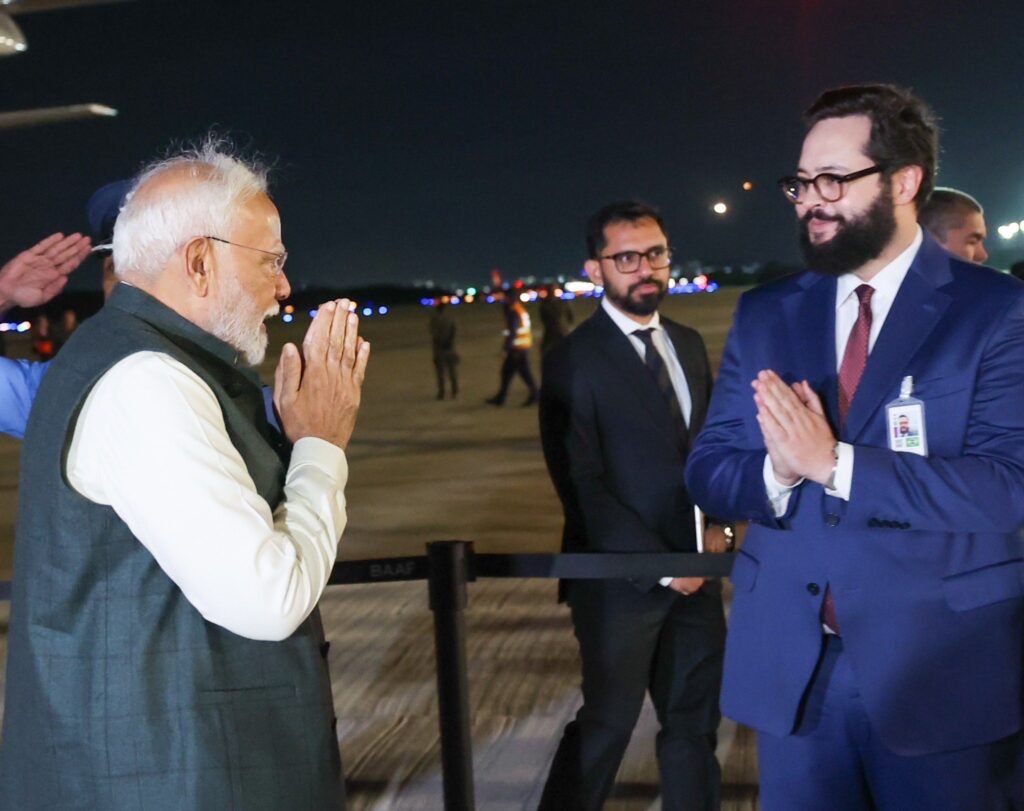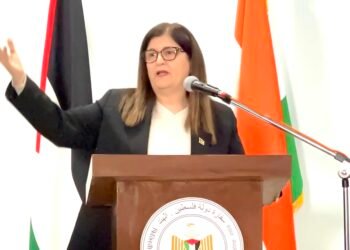RIO DE JANEIRO/ NEW DELHI: As BRICS gets its largest facelift in 16 years, Prime Minister Narendra Modi arrives in Rio de Janeiro. The forum now includes Egypt, Ethiopia, Indonesia, Iran, Saudi Arabia, and the UAE. It claims to represent more than half of the world’s population, approximately 40% of its output (PPP), and over 45% of its proven oil reserves. It’s interesting to see who isn’t at this first summit under the new setup. Xi Jinping of China gave Premier Li Qiang the job, while Vladimir Putin of Russia is calling in from Moscow. India and Brazil are in charge of the floor.

Brazilian host Luiz Inácio Lula da Silva has focused the public agenda on health security, inclusive AI governance, and green finance. He is quite aware that U.S. President Donald Trump has warned 100% tariffs on any economy that “plays games with the dollar.” New Delhi, which will take over the rotating chair next year, likes the caution. India’s three main requests are simple, doable, and meant to prove that BRICS can address problems instead than just talking about them:
- Trade rails in local money. The Reserve Bank of India’s rupee-dirham trial with the UAE is already up and running. Modi wants to add Riyadh and Jakarta, using India’s UPI backbone as the technical layer.
- Money for rebuilding. The New Development Bank’s new guarantee window would bring in private money to help rebuild Gaza, Ukraine, and conflict-ridden areas of Kashmir after the war. The idea has been approved by finance ministers, and now leaders need to sign the term sheet.
- IMF quota revision. BRICS will try to get the IMF to change its voting rules in December so that emerging economies have more power and Europe no longer has an automatic lock on the managing director’s chair.
Crisis headlines make the pitch more important. U.S. intelligence just confirmed that Iran was getting ready to mine the Strait of Hormuz during April’s missile conflict with Israel. This news made tanker insurance prices go up and India’s crude oil import cost go up as well. In South Asia, the Pahalgam tourist massacre in April led to four days of missile, drone, and artillery engagements. Now, Delhi wants the Rio communiqué to condemn “cross-border terrorism,” which is new for BRICS terminology. At the same time, India and Brazil are quietly asking Moscow to reopen the Black Sea grain corridor, hoping that the benefits of cheaper food for Africa will exceed any concerns the Kremlin may have.
There are still problems within. Tehran wants stronger language about Gaza, but Cairo and Abu Dhabi don’t agree. Russia supports de-dollarization but doesn’t want to give up power in the NDB. Beijing wants a digital-yuan clearing house, but Delhi won’t accept it.
But the fact that Xi and Putin are not there gives more power to middle-income democracies that want real wins. Lula’s main aim, “Tropical Forests Forever,” goes well with India’s aspirations for green energy and gives Washington something to cheer about when it comes to climate change.
Modi’s main idea is optionality: several currency trains, different security talks, and different climate funds. These are like insurance against weaponized tariffs and chokepoint blockades. The prototype rupee-dirham-riyal LNG contract that is now on the table would test both the payments grid and the new NDB guarantee window before Trump’s tariff clock runs out on July 9. If they succeed, it will show that BRICS can still do business even when geopolitics is on fire!
But there isn’t much room for mistakes. A rogue Iranian drone over Eilat or a new skirmish along the Line of Control might blow up the message, bring up the idea of a China-centered BRICS again, and give the dollar’s guardians a chance to spread their message.
Modi needs to make sure that the problems in West Asia don’t ruin the consensus, persuade Beijing that openness is better than veto power in the NDB, and calm Washington’s fears that a multipolar payments system is just a way to be anti-American. A tough job? Definitely! Is it possible? Maybe!
If he can pull it off, Rio might be the time when the Global South went from talking to creating rules, with India as its most important broker! If he makes a mistake, the bigger forum could turn into a louder but less useful complaint club. The next 48 hours will show if BRICS+ goes from being a talking shop to a power broker or if it fails because of its own ambition!
– Dr. Shahid Siddiqui; Follow via X @shahidsiddiqui

















